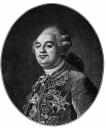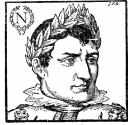Contact
Dr. Justice
Course
Policies
Goals
Textbook
Assignments
Study
Guide Index
Authors
List
History
Notes
Glossary
Text
Version
Site
Map
Home Page
|
| Text
Version: September 5, 2001 |
The reading for
September 5 includes Perspectives: The Abolition of Slavery and the
Slave Trade, pp.149-195, some of which you will find below. Please
read the assignment carefully before the class period.
From
The Interesting Narrative of the Life of Olaudah Equiano
or Gustavus Vassa, the African
[The Slave Ship and Its Cargo]
The first object that saluted my eyes when I arrived on the coast
was the sea, and a slave ship, which was then riding at anchor, and
waiting for its cargo. 1 These filled me with
astonishment, that was soon converted into terror, which I am yet
at a loss to describe, and much more the then feelings of my mind
when I was carried on board. I was immediately handled and tossed
up to see if I was sound, by some of the crew; and I was now persuaded
that I had got into a world of bad spirits, and that they were going
to kill me. Their complexions too, differing so much from ours, their
long hair, and the language they spoke, which was very different from
any I had ever heard, united to confirm to me in this belief. Indeed
such were the horrors of my views and fears at the moment, that if
ten thousand worlds had been my own, I would have freely parted with
them all to have exchanged my condition with the meanest slave in
my own country. . . .
1.
Captured by slavers along with his sister, Equiano was soon separated
from her and sold to different masters over a period of several months
before reaching the African coast for shipment to Barbados.
| Study
Guide: September 5, 2001 |
Perspectives: The Abolition
of Slavery and the Slave Trade
What makes any of these pieces
-- whether autobiographical (Equiano's Interesting Narrative
or The History of Mary Prince), dramatic (Bellamy's The Benevolent
Planters), poetic (Yearsley, Cowper, Southey, Wordsworth), or journalistic
(Clarkson) -- effective as arguments in an ongoing social debate?
Perspectives: The Abolition of Slavery and the Slave Trade begins on
page 149 of the textbook.
- The Interesting Narrative
of the Life of Olaudah Equiano: Do we trust Equiano's account
of his life of slavery as "authoritative"? Where does
this authority come from? Skillful writing? Or somewhere else?
- The History of Mary
Prince: Does Mary Prince's autobiographical narrative in any
way use her gender for rhetorical purposes? Does it matter that
"Mary Prince" is a woman rather than a man?
- The Benevolent Planters:
To modern ears, this is a ridiculous piece. Can you present an argument
that would pinpoint why it might have been effective in 1789 as
a support of plantation owners?
- A Poem of the Inhumanity
of the Slave Trade: Compare the characterization of Luco here
to the self-characterization of Equiano and the characterization
of Oran in The Benevolent Planters. Which one is Luco more
like? In what way are the characterizations achieved?
- Southey's sonnets: The
sonnet is one of the most venerable of English verse forms. (See
Glossary definition on p. 2928 for an explanation of how it works.)
Compare the more difficult, condensed poetry of Southey to the simpler
narrative style of Hannah More in The Sorrows of Yamba. Thinking
of these poems as "propoganda," which are more effective?
Southey's or More's? What makes propaganda successful? Is propaganda
different from art?
- Clarkson, The History
of the Rise, Progress, & Accomplishments of the Abolition
of the African Slave-Trade by the British Parliament: What are
the most effective details Clarkson uses in his account? What allows
these particular details to work upon readers? Why should we care?
Historical
Background:
The Romantics |
| 1780s |
|
The American Revolution
was recent memory for the British . . . an embarrassment for
the prestige of the Empire, and a worry to a conservative ruling
class concerned about he arrival of democratic ideals on British
shores.

When the next Revolution
exploded in France . . . the press of radical, violent, and
inevitable change seemed imminent.
|
| July
14, 1789 |
|
Fall of the Bastille
prison,a symbol of royal tryanny
. . . British consciousness was dominated by French events
|
| French
Revolution of the 1790s |
|
A radical break in
historical continuity
Enthusiasts heralded
the fall of an oppressive aristocracy and the birth of democratic
and egalitarian ideals, a new era, shaped by "the rights
of man" rather than the entailments of wealth and privilege,
while skeptics and reactionaires rued the end of chivalry, lamented
the erosion of order, and foreasaw the decline of civilization
|
| 1792
|
|
August
Overthrow of the French monarchy
September
Massacre of more than a thousand prisoners by a Paris mob
Extremist Jacobins
prevailed over moderate Girondins, the French Revolution fragmented
into the Reign of Terror
|
| 1793
|
|

January
Louis XVI guillotined
February
France declares war on Britain and Britain reciprocates -- Throwing
the political ideals of Wordsworth and his generation into sharp
conflict with their love of country
October
Queen Marie Antoinette guillotined
|
| 1792-1793 |
|
Terror of Robespierre
- thousands of aristocrats, their employees, the clergy, and
ostensible opponents of the Revolution were guillotined
|
| 1794 |
|
France offers to
support all revolutions abroad
France invades the
Netherlands and the German states
|
| 1796 |
|
France invades Italy
|
| 1798 |
|
France invades Switzerland
|
| 1799 |
|
Napoleon staged a
coup d'etat and was named First Consul for life
|
| 1804 |
|

Napoleon crowned himself Emperor
|
Text and notes taken
from The Longman Anthology of British Literature copyright ©1999 by
Addison-Wesley Educational Publishers, Inc.
Site copyright© 2001 Joan Bahamonde, George Justice, and Susan
Soto
|


